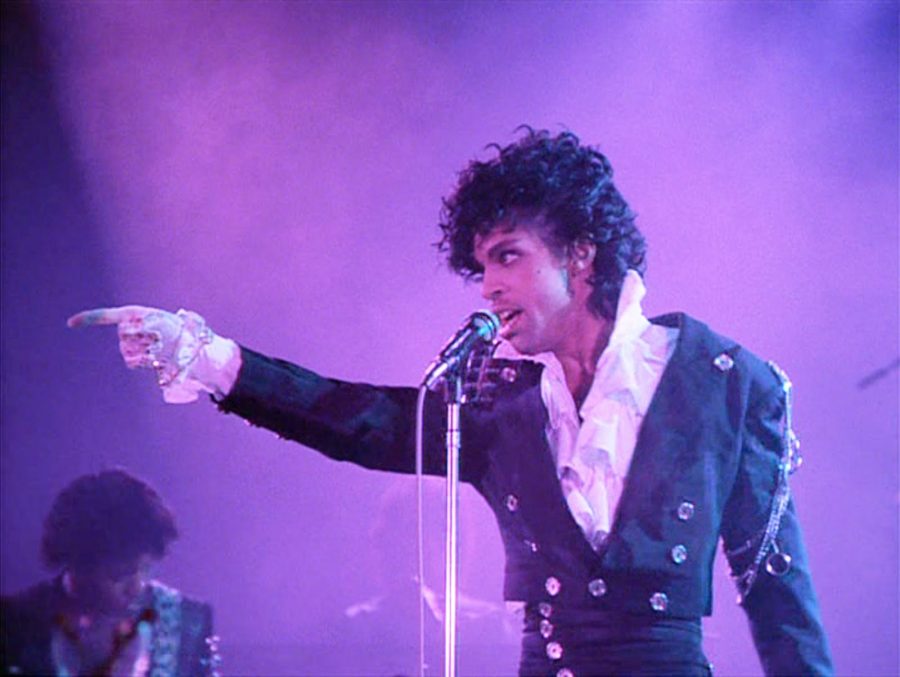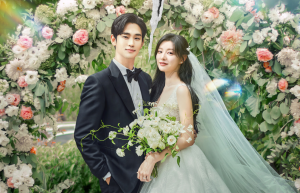Generation Z discovers Prince, but too late
Photo courtesy of the Star Tribune: http://stmedia.startribune.com/images/ctyp_73ded5_prince-purp.jpg.
April 26, 2016
The moment I read the tweet on April 21—“Prince pronounced deceased at 10:07 A.M. this morning”—I texted my dad. “DAD. PRINCE IS DEAD,” I wrote, unbelievingly. Then I started to question if those words could really be true; the Internet is often unreliable. I checked again. The New York Times verified the claim.
All over the world, celebrities and social media users began to mourn. I saw my favorite band tweet about how profoundly Prince had influenced their music. I watched Youtube videos announcing the news and liked Facebook posts from my parents’ friends. I saw stories of artists and musical casts paying homage to the Artist Formerly Known as Prince (a name that is one of the most ingenius evasions of American law, if you ask me). I read articles–like this New Yorker piece by Vinson Cunningham–that lauded Prince’s 38-year career as “his generation’s most startling and dramatic guitarist.”
But my timeline and Twitter feed lacked an entire population: my classmates and friends. I saw maybe two or three updates total from people my age. One of them was from Jefferson senior Connor Jones, who immediately changed his Facebook profile picture to a picture of Prince.
“When I found out that Prince was dead, I was really shocked,” he said.
Many of his classmates at Jefferson, though, had not known who Prince was until they heard the hoopla over his death. “In Black Student Union’s [Facebook] group chat, it was mentioned that Prince was dead,” Jones said. Aside from that, “I don’t know many other people from TJ who really knew about Prince in that sense.”
Jefferson’s sprinting coach, Monica Meeks, describes herself as “A huge fan [of Prince]. A fan since as long as I can remember.” She became a fan during childhood: “Right around the time when I was 7 or 8 was when I started listening to Jackson’s “Thriller” album, and right after that was when I started listening to Prince.”
Jones, on the other hand, began listening to Prince when he came across his music in his parents’ iTunes library. “My parents were big fans of Prince,” he said. “‘Adore’ is probably one of my favorite songs.”
Evidently, because Prince’s heyday occurred long before people of my generation became media consumers, many had never known his legacy or his music before his death. In addition, young people can’t find Prince’s music on modern outlets like Spotify and Youtube. “People in your generation wouldn’t know about Prince unless someone has exposed them to it,” Meeks said.
Her point is critical: the faint reactions to the singer-songwriter’s death at Jefferson and other high schools evidence the schools’ youth and the fact that many simply didn’t have parents who played his music for them. While generations before us mourn, we are largely unaffected.
And the generations before us, from the Baby Boomers to Millenials, are profoundly touched. For Meeks, Prince’s death, added to recent losses of other musicians, indicates a startling trend. “I’m not that old; I’m almost 40. When I look back, I think that’s young.”
But, “It seems like superstars that I grew up with who I just thought were creative geniuses—Michael Jackson, Whitney Houston, Prince, even Glen Campbell—they’re all just dying. 57 is young…it’s sad,” she said. “All the good ones are gone.”
That’s not to say that no Generation Z teenagers had strong reactions—Jones proves otherwise. He even recorded a cover of “Purple Rain” for a friend. “I got fairly emotional in the middle the song,” he said. “It’s a beautiful song and you just get caught up in the emotion of it.”
There still remains the controversial topic of how and why Prince died so suddenly, but for the most, the reasoning is inconsequential. What matters is the shock, the sadness.
“It really took me by surprise; I was just like, this is crazy. Prince is as old as my dad and he was healthy but he’s dead. It just put a lot of things into perspective,” Jones said.
“There’s always going to be speculation,” Meeks said. But she does not subscribe to the varied conjectures. “Because I was a huge fan, I followed his lifestyle, I know that he was not a substance abuser; I know that he’s a Jehovah’s Witness, he’s a humanitarian.”
Regardless of the controversy surrounding Prince’s death, his legacy as one the world’s most versatile pop performers will remain timeless. “Some of the cynics are like, ‘how is it that we can be so touched or so moved by someone that we didn’t even know?’” Meeks said. But, “It wasn’t about whether we knew the person; it was about what his music made you feel. You can listen to a song and have a memory. And Prince, I think, evokes that in people.”






